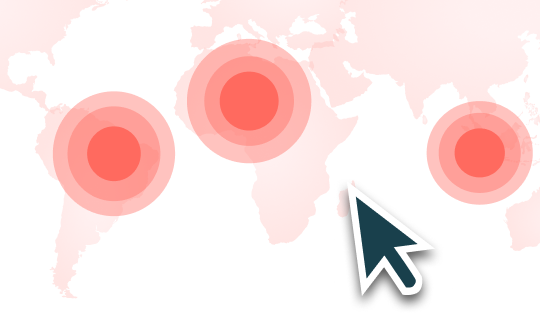Forest and peat loss driven by key agricultural commodities generate more emissions than Germany
New research reveals the vast carbon footprint of deforestation and peat loss driven by the expansion of beef, soy, palm oil, wood pulp and cocoa. To meet climate targets, world leaders at COP28 are urged to take stronger action against the nature loss linked to global supply chains.
Oxford, United Kingdom (5 December 2023) – New research released today by Trase[1] shows that the expansion of plantations and cattle pasture onto forests and peatland for key agricultural commodities emits more carbon each year than Germany (701 million tonnes CO2 equivalents).
Narrowing this to the share of commodities that were exported shows yearly emissions greater than those of Spain (282 million tonnes CO2 equivalents).
The research looked at how the expansion of beef, soy, palm oil, wood pulp and cocoa drives deforestation and peat loss in six key producing countries.[2] It quantified the resulting emissions and connected them to the volumes sourced by importing markets, to assess their exposure to these emissions.[3]
The research highlights the opportunity that importing countries have to reduce global emissions significantly by eliminating deforestation from their supply chains. The EU’s new deforestation regulation mandates due diligence on commodity imports and their links to deforestation, but the size of its market is ultimately limited, pointing to the need for action across a broader range of importing markets.
“Many countries are importing the same commodities, via the same trading companies, from the same producing countries - and often the same deforestation hotspots,” said Dr Carina Mueller, a Research Fellow at the Stockholm Environment Institute, who led the research for Trase. “The field is ripe for them to collaborate on pushing importers to include action on deforestation at the heart of their sourcing practices, including through legislative and policy frameworks.”
For further information, contact:
Jolene Tan, Trase Communications Lead at Global Canopy | j.tan@globalcanopy.org | +44(0)7961657 952
Notes for Editors
[1] Trase is a data-driven transparency initiative that maps the international trade and financing of agricultural commodities, providing tools that enable companies, financial institutions and governments to address tropical deforestation.
Read the emissions insight or watch a video highlighting key findings.
[2] Beef from Brazil; soy from Brazil, Paraguay, Argentina and Bolivia; cocoa from Côte d’Ivoire; and palm oil and wood pulp from Indonesia.
[3] A more detailed breakdown of the emissions exposure by commodity and importing market is available on request.




